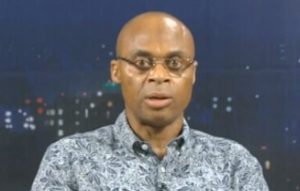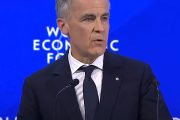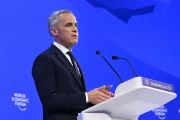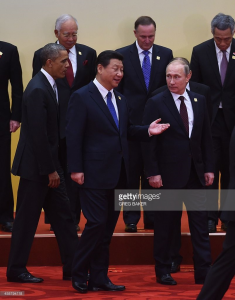
The cover of one of the academic works by the late Toure
Death has struck again in the community of activists in Nigeria a month after the death of Professor Abubakar Momoh and two weeks after the death of Professor Funmi Adewumi, a leading left academic, with bias for labour relations. Dr. Toure Kazah, the Ahmadu Bello University, Zaria History academic died this morning at the age of 58. He had been sick. A text message from Dr Kabir Chafe, former Minister of State for Petroleum, his classmate and long time friend, declared that “Malam Toure has just received the final call of his creator” and that he would be buried by 1. 30 pm today, about an hour from the time this story is posted.
Dr Zuwaqhu Bonat with whom the late Toure lived for eight years when Toure was a student described the deceased as a thorough bred scholar who produced the best documentation of the nationalist struggle in Zangon Kataf even as he noted the many contradictions he embodied. The first of such was the late Toure’s reactions to nationalism and Christianity. Feeling extremely disappointed by what he regarded as the sell out of the Nigerian elite to imperialism, he moved from nationalism to Pan-Africanism, a move which drew inspiration and was consummated by his immersion in the CODESRIA, (Council for the Development of Social Science Research in Africa) epistemic community where the impact of Professor Mahmood Mamdani in particular was inestimable. Professor Mamdani is an African intellectual stalwart. Dr Bonat added though how Toure had been inherently a Pan-Africanist even much earlier, so much admiring Ahmed Sekou Toure of Guinea as to adopt the name, becoming Toure Kazah. He was thus known to the international academic community as a Pan-Africanist.
Otherwise, he was a born rebel, organising people very early in life to support the radical ferments in his local area, hence the nickname ‘PRP’. At the Ahmadu Bello University, Zaria, he was a strategic thinker and planner for the Movement for Progressive Nigeria, (MPN), the platform that managed the larger student union. In those days, there was no Christian versus Muslim candidates in the student movement. It was strictly radicals versus conservatives.
Till his death, he never stopped looking at reality through the class prism. As such, he could maintain balance and clarity in his scholarship that would ordinarily have been difficult for someone from his background. Kazah Yashim, his father, was an educated man and the first Southern Kaduna to be appointed the District Council in 1954. Although the father remained a Christian, the family ended up with Christian and Muslim members, Toure being one of the Muslims, a development which some people trace to the killing of 12 of his Muslim relations in the 1992 Zangon-Kataf, an act lost in different narratives of it as to which side did it. Toure must have bought the narrative that the Christians killed them because they were Muslims although the Christians hold their demise to the Muslims. This is mentioned here to illustrate the complexity of the situation certain individuals are thrown into because of the senseless violence northern Nigeria has been reduced to in the past four decades by a clueless power elite that has nothing to offer the masses beyond violence.
Beyond that, he lost so much of original documents to fire which gutted where he lived in Zaria in the early 2000, particularly colonial security reports on the defunct NEPU. And, until his classmates such as Dr Kabir Chafe put their foot down when he became a leader in ABU, Zaria’s Department of History, the late Dr Toure was blocked from getting appointed as a lecturer. It had to do with tendency politics in the Department.
Dr Bonat asserts that the late Toure might have survived all these and lived this long due essentially his strict regime of exercise which went up to five-six kilometres when he was on it, rating the deceased as a man of peace who bore no grudges against anyone, was very quiet and kept mostly to himself. The death of Toure is thus regarded as the exit of not only one of the best trained Historians in their generation but also about the best speaker of Atyap language before his class and nationalist consciousness submerged that.
Among his academic works are “Transcending Myths and Mystifications: Challenge of Ethnic and Religious Conflicts in Northern Nigeria in the 21st Century”, “Discourse on the Citizenship Question in Nigeria”, “Ethno-religious Conflicts in Northern Nigeria” done jointly with Professor Jibrin Ibrahim, another of his long time friends.

Prof Abubakar Momoh who died in Abuja on May 29th, 2017

Prof Tsikata
Meanwhile, academia, civil society and the policy mill will be rising in honour of Professor Abubakar Momoh July 7th, 2017 in Abuja when Prof Dzodzi Tsikata delivers a memorial lecture to that effect. Prof Tsikata, the President of the Dakar based Council for the Development of Social Science Research in Africa, (CODESRIA) as well as Vice-Chair of the Centre for Development and Democracy, (CDD) is a gender specialist based at the University of Ghana. She would be speaking on “Pan-Africanism and Democratic Struggle”, a subject matter the late Momoh had written about during his life time. The most referenced of his academic works in that respect is titled “Does Pan-Africanism Have a Future in Africa? In Search of the Ideational Basis of Afro-Pessimism” and it is downloadable from Google. The lecture will take place at the Auditorium of the National Universities Commission, (NUC) in Abuja.
Academia, the civil society and the policy mill were the key theatres the late Prof Momoh operated mainly. He was, until his sudden death on May 29th, 2017, the Director-General of The Electoral Institute, (TEI), the research arm of Nigeria’s Independent National Electoral Commission, (INEC). Before he came over to TEI, he was the Dean of the Faculty of Social Sciences at the Lagos State University, (LASU). Apart from headship of TEI, the late Momoh served think tanks, regional and international committees.

Prof Funmi Adewumi
It is difficult to understand how Toure and Abubakar Momoh would be leaving the world almost together. They remain some of the most exemplary all-rounders of that generation. Interestingly, the two are leaving with Prof Adewumi, the Dean of Social Sciences at the Ikire Campus of Osun State University who died June 13th, 2017. Comrades Abiodun Aremu and John Odah who knew him very well say he is the most published labour intellectual in Nigeria today. Adewumi was a contemporary of Femi Falanas and Dapo Olorunyomis in the early 1980s from Obafemi Awolowo University, Ile-Ife.
He taught Sociology breifly at the University of Ibadan in 1987 as an irregular staff after obtaining his PhD before anchoring at the University of Lagos, moving over to his position before death, with a stint at Frederich Ebert Foundation. He had also been the Principal Training Officer at the Michael Imoudu Institute of Labour Studies as well as a resource person for the International Labour Organisation and a labour institution in Namibia. As a result of the degree of his moving around, he was nicknamed the ‘Nomad Intellectual’.
Prof Adewumi who would be buried July 21st will have a symposium by the activists circle around the Kolagbodi Foundation for him on the theme “Labour, Democracy and the Future of Nigeria”. That would take place on July 20th, 2017. Interesting again is the fact that while Prof Adewumi delivered the 8th Kolagbodi Lecture, Prof Momoh delivered the 9th.




























